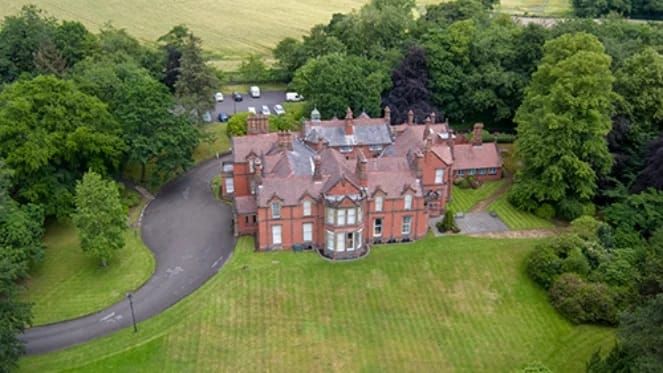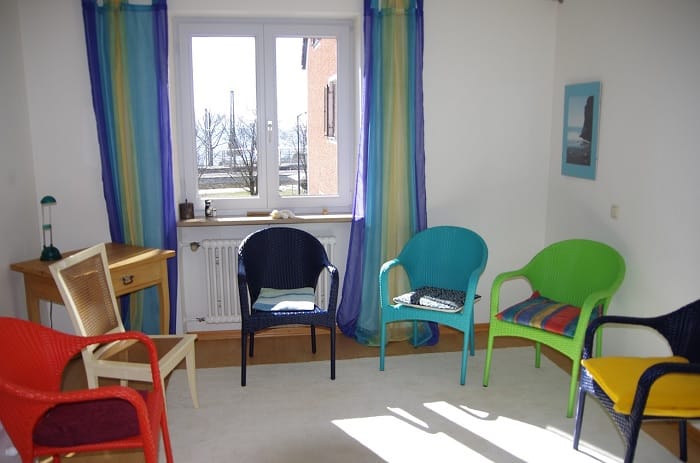Do you live in Lancashire and require advice relating to drug addiction rehab treatment or alcohol rehab treatment?
Are you struggling with alcohol binge drinking, ketamine use, opioid use disorder, or even behavioural addictions like sex or gambling addiction, and need the help of an alcohol rehab?
If so, contact Rehab 4 Addiction today.
We offer you advice on a range of rehab addiction treatments in Lancashire including detoxification, rehabilitation, aftercare and addiction counselling.
We ensure you receive an alcohol rehab package that’s suited to your particular needs.
With your permission, we forward your details to a drug and alcohol rehab in Lancashire or near Lancashire that we believe is geared towards helping you through this troubling time.
Rehab 4 Addiction offers a variety of drug and alcohol rehabs in North West England, including Lancashire, Cumbria, Merseyside, Manchester, Liverpool and Cheshire.
To start your addiction recovery journey at a first-class drug and alcohol rehab in Lancashire today, call our team on 0800 140 4690

An intervention is a carefully planned process in which steps are made to help a person facing addiction or substance abuse issues access appropriate alcohol rehab treatment.
Many people facing problems with drugs or alcohol often fail to see the severity of their issues and downplay how much they are struggling, making the pursuit of suitable alcohol rehab treatment very unlikely.
Interventions are difficult to predict and hard to conduct successfully, sometimes even making drug and alcohol rehab less likely if the conversation goes wrong.
If you attempt to confront someone alone, you may make the situation worse and cause your loved one to refuse alcohol rehab treatment.
With the help of a professional interventionist familiar with the various drug and alcohol rehab options in Lancashire or near Lancashire, you can help mediate a calm conversation in which you and your family members voice your concerns.
They can use their knowledge to organise a safe space where the severity of the addiction is shown in its entirety and suitable alcohol rehab treatments are presented at the right time.
Their presence doesn’t have to be in your home, but they can assist you in helping your loved one or friend access the alcohol rehab treatment they deserve.
For help conducting an intervention in order to convince a loved one to attend alcohol rehab in Lancashire, call us on 0800 140 4690

The total cost of drug and alcohol rehab in Lancashire depends upon many factors such as the clinic you select, the available alcohol rehab facilities and the duration of time spent there.
If you are looking for a 10-day detox at a Lancashire alcohol rehab facility you will most likely be looking at paying around £3,000 to £6,000 for a single occupancy room and £2,000 to £4,000 for a dual occupancy room.
If you want to complete a 28-day alcohol rehab stay, prices range from around £8,000 to £12,000 for a single occupancy room and around £6,000 for a dual or multi-occupancy room.
For clients who are interested in home detoxes in Lancashire or near Lancashire instead of full lalcohol rehab treatment, expect to pay around £1,500.
However, this alcohol rehab programme will only be recommended to select clients who are not facing severe addictions.
You can learn more about the cost of drug and alcohol rehab here.
Below, we list several drug and alcohol rehabs in Lancashire:
Address: Witton Bank, Spring Ln, Blackburn BB2 2PW
Tel: 0125 466 0861
Google Maps: https://www.google.com/maps?cid=9454669215704943645
The Care Quality Commission’s independent report for this organisation can be read here: https://www.cqc.org.uk/location/1-125045640
Positive Aspects highlighted in the report included:
Areas for improvement highlighted in the report included:
Address: 94 Queen’s Promenade, Blackpool FY2 9NS
Tel: 01253847553
Google Maps: https://www.google.com/maps?cid=11836632689525968194
The Care Quality Commission’s independent report for this organisation can be read here: https://www.cqc.org.uk/location/1-1715975287
Positive Aspects highlighted in the report included:
Areas for improvement highlighted in the report included:
Address: 23-25 All Saints’ St, Bolton BL1 2EJ
Tel: 0120 477 1940
Google Maps: https://www.google.com/maps?cid=17579341121286179136
The Care Quality Commission’s independent report for this organisation can be read here: https://www.cqc.org.uk/location/1-4445988538
Positive Aspects highlighted in the report included:
Areas for improvement highlighted in the report included:
Address: Bury Ln, Withnell, Chorley PR6 8BH
Tel: 0125 420 0000
Google Maps: https://www.google.com/maps?cid=4692226471861142549
The Care Quality Commission’s independent report for this organisation can be read here: https://www.cqc.org.uk/location/1-4867032400
Positive Aspects highlighted in the report included:
Areas for improvement highlighted in the report included:
Address: Littledale Hall, Littledale, Lancaster LA2 9EY
Tel: 0152 477 1500
Google Maps: https://www.google.com/maps?cid=17147000064574180938
The Care Quality Commission’s independent report for this organisation can be read here: https://www.cqc.org.uk/location/1-111138408
Positive Aspects highlighted in the report included:
Areas for improvement highlighted in the report included:
Address: 258 Church St, Blackpool FY1 3PB
Tel: 0125 320 5158
Google Maps: https://www.google.com/maps?cid=14215581518083775200
The Care Quality Commission’s independent report for this organisation can be read here: https://www.cqc.org.uk/location/1-3216708905
Positive Aspects highlighted in the report included:
Areas for improvement highlighted in the report included:
Address: Brookdell House, 11 Foreside, Barrowford, Higherford, Nelson BB9 6AB
Tel: 0120 044 5200
The Care Quality Commission’s independent report for this organisation can be read here: https://www.cqc.org.uk/location/1-4564192594
Positive Aspects highlighted in the report included:
Areas for improvement highlighted in the report included:
Address: 14-16 Edward St, Oldham OL9 7QW
Tel: 0161 212 1435
The Care Quality Commission’s independent report for this organisation can be read here: https://www.cqc.org.uk/location/1-3955478171
Positive Aspects highlighted in the report included:
Areas for improvement highlighted in the report included:
Address: 385 Clifton Dr N, Lytham Saint Annes FY8 2NW
Tel: 0125 372 3144
Google Maps: https://www.google.com/maps?cid=9463104416334372664
The Care Quality Commission’s independent report for this organisation can be read here: https://www.cqc.org.uk/location/1-698064249
Positive Aspects highlighted in the report included:
Areas for improvement highlighted in the report included:

Most people believe that council-funded drug and alcohol rehab treatment such as that offered by your local council, is enough for all people facing drug or alcohol addiction to enter addiction recovery.
Whilst we wish this was true, it is unfortunately far from reality.
Whilst council-funded alcohol rehab drug and alcohol treatment is free for all and is offered in most areas of the UK through local authorities, including in Lancashire, it has major downsides.
Many patients slip through the cracks due to long waiting lists for alcohol rehab help and the lack of support for mental health.
If you have mild substance abuse issues or are wanting to seek help in Lancashire before a drug or alcohol problem gets worse, council-funded rehab treatment could be an option for you.
However, if you want immediate support and admission to an alcohol rehab facility, a private drug and alcohol rehab in Lancashire will be in your interest.
With council-funded alcohol rehab treatment, residential referrals are very rarely offered which means that those with severe addictions are expected to recover at home where negative associations and triggers can be at their highest.
Private drug and alcohol rehab can provide you with a tailored programme catered to your every need.
By committing to a 28-day alcohol rehab stay you can complete a medically observed detox programme followed by a variety of therapies.
The downside to private drug and alcohol rehab treatment is often the cost involved.
The price for treatment varies depending on the location, the type of alcohol rehab facility and the treatment you receive.
Whilst previously drug and alcohol rehab was considered inaccessible to most people, there are now many clinics around the UK and in Lancashire that cater to all budgets, making private treatment a lot more inclusive.
Free and council-funded drug and alcohol addiction treatment services [1] available throughout Lancashire include:
Address: The Lofthouse building, London St, Fleetwood, Lancashire FY7 6JL
Telephone: 01253 877 633
Website: https://www.changegrowlive.org/local-support/find-a-service
Address: The Mill, Longmeanygate, Leyland, Lancashire PR26 7PA
Telephone: 01772 458 657
Website: https://www.turning-point.co.uk/
Address: Shawbrook House, Balcarres Rd, Leyland, Lancashire PR25 3ED
Telephone: 01772 644 644
Address: First Floor, West End Community Centre, Westminster Rd, Morecambe, Lancashire LA4 4JE
Telephone: 01524 415 278
Website: http://www.thewellcommunities.co.uk/
Address: YMCA, New Rd, Lancaster, Lancashire LA1 1EZ
Telephone: 01524 239 570
Website: https://www.wearewithyou.org.uk/services/lancashire-for-young-people-lancaster/
There are a number of remote alcohol rehab and addiction support services that could also assist in overcoming addiction, including Turning Point, Change Grow Live, We Are With You, the National Association for Children of Alcoholics and the National Institute for Health and Care Excellence (NICE).
You might also be able to gain temporary residence to a local sober living house, if your home environment may put your alcohol rehab recovery at risk.
For help choosing between private and NHS-funded drug and alcohol rehab in Lancashire, give our team a call on 0800 140 4690

At Rehab 4 Addiction, we only refer our clients to the best alcohol rehab clinics and have helped thousands of people source the most suitable alcohol rehab treatment in Lancashire or near Lancashire for their drug or alcohol needs.
If you are facing issues with alcohol, seeking treatment at a residential drug and alcohol rehab in Lancashire will always be in your best interest if you are determined to get sober.
Residential alcohol rehabilitation in Lancashire can help shield you from temptations and triggers whilst you are detoxing and completing therapy.
This type of alcohol rehab treatment typically begins with Librium-based detoxification.
Librium is the brand name for chlordiazepoxide, a benzodiazepine which helps to dramatically reduce feelings of anxiety and cravings and is often used at drug and alcohol rehab.
Another medication that can be used during your time at alcohol rehab to help you stop drinking is Acamprosate [2] (Campral®). It helps to rebalance the chemicals in the brain that have been damaged by alcohol.
Alcoholism can also cause anxiety and depression, which means you could get prescribed specialist medications at alcohol rehab such as an antidepressant like nefazodone, desipramine or imipramine.
The opioid antagonist Naltrexone [3] can also be good for cutting alcohol out of your life as it decreases the appeal of consuming alcohol, making sobriety easier to maintain after alcohol rehab.
Naltrexone helps to uncouple the relationship between alcohol and pleasure, making staying away from alcohol after rehab much easier.
Alcohol detoxes usually last around 10 days with most patients opting to stay at alcohol rehab for a further 3 weeks to help eliminate emotional dependencies and associations.
During these 3 weeks at alcohol rehab, you will be expected to attend various therapies to help break down the root of your problem as well as lay the foundations for relapse prevention upon your return home.
To learn more about alcohol rehab in Lancashire, call our team on 0800 140 4690

Alcohol withdrawals can be fatal, even when at alcohol rehab.
If they are left unmanaged and are not properly supported at an alcohol rehab or other medical facility, they can quickly turn to Alcohol Withdrawal Syndrome (AWS).
AWS typically occurs when someone who regularly drinks high levels of alcohol quickly ceases their consumption.
AWS causes clients to feel a combination of physical and psychological alcohol withdrawal symptoms, such as:
Some of these more extreme alcohol withdrawal symptoms, including delirium tremens and seizures, can be life-threatening if not supported properly, which is why recovery at alcohol rehab is so important.
To avoid developing AWS, call Rehab 4 Addiction today on 0800 140 4690 to discuss admission to a local drug and alcohol rehab in Lancashire

If you would prefer to detox at home instead of at a alcohol rehab in Lancashire, you must be drinking less than 30 units of alcohol a day.
Staff from a local alcohol rehab clinic or GP practice in Lancashire or near Lancashire will help to determine if this will be beneficial for you by conducting assessments beforehand.
If you have been identified as a low-risk and are therefore able to detox from alcohol at home, Librium will be sent via post to your home address.
To qualify for a home detox, you must be willing to maintain daily contact with your alcohol rehab support service which will monitor your progress via phone calls.
Home detoxes are not to be confused with self-detoxes which are performed without any medical help at all, whether from an alcohol rehab or from a GP.
Self-detoxes are also referred to as quitting alcohol ‘cold turkey’ and can cause AWS if the consumption of alcohol is quickly stopped.
To stop this from happening, contact Rehab 4 Addiction for support and advice.
Our team can help you decide whether or not to begin a medically supervised home alcohol detox without the need to enter alcohol rehab, ensuring your safety at all times.
With an appropriate support system in place, a home detox could be a possibility for your addiction treatment, provided that you can remain motivated and invested in your success even without drug and alcohol rehab support.
To find out if you would be suitable for a home detox, or if a drug and alcohol rehab in Lancashire would be more suitable, call our team today on 0800 140 4690

Addiction to cocaine causes many major changes in the brain, making rehab treatment even more difficult.
After using the substance repeatedly, a tolerance is built up which means you will feel sad and depressed after not using cocaine.
This is because both cocaine and crack cocaine increase the levels of dopamine in the brain, which makes the user feel good for a short period.
With the correct care and cocaine rehab treatment, overcoming cocaine addiction can be a possibility.
Your cocaine rehab programme will typically begin with a short period of withdrawal, although as cocaine is not physically addictive this is not considered a cocaine detox and will not be as intense as other substances.
With personal and medical assistance at all times, staff at your chosen cocaine rehab clinic can begin to help you get your life back on track.
After these initial days, you will move on to addiction therapies to help you combat your emotional ties to cocaine use and stay sober for good after drug and alcohol rehab has concluded.
Beat your cocaine addiction today with the help of a drug and alcohol rehab in Lancashire by calling us on 0800 140 4690

Heroin is an opiate drug that can be physically and psychologically addictive.
It can be very hard and even dangerous to overcome an addiction to heroin without the help of rehab professionals.
By opting for rehab treatment at a residential rehab facility in Lancashire you can begin treatment strait away, starting with a tempered heroin detox.
This is where heroin is substituted for a substance like methadone or buprenorphine, where the substance is gradually reduced so that you can completely break free of your physical dependence.
This ensures that heroin withdrawal symptoms – which can be deadly – are kept to a minimum and safely addressed whilst in the security of a drug rehab facility.
After this difficult period, heroin rehab will focus on building a mindset and lifestyle that is more resilient to drug addiction, using psychological therapies and personalised counselling to ensure that your sobriety can be maintained for good outside of rehab.
With the help of medical professionals at the right rehab centre, a life free from the clutches of heroin can be a reality for you.
Beat your heroin addiction today with the help of a drug and alcohol rehab in Lancashire by calling us on 0800 140 4690

Cannabis is one of the most abused substances in the world.
Many people use it for its relaxing benefits, but dependence can quickly form, sometimes requiring professional rehab support to treat.
When the cravings of cannabis use disorder are not satisfied it causes users to feel nausea and headaches, driving the urge to use cannabis again.
Cannabis is also considered a gateway drug, meaning constant usage can cause people to reach for stronger substances such as cocaine and heroin, making addiction and rehab treatment all the more intense and dangerous.
A recent study [4] has identified the adverse side effects of regularly using cannabis during adolescence and into adulthood could include:
To prevent any of these dangerous effects from occurring, we recommend reaching out to our team to find a suitable cannabis rehab service in Lancashire.
While medications like Selective Serotonin Reuptake Inhibitors (SSRIs) can help ease anxiety symptoms. [5] you should try to prevent anxiety and other effects that cannabis might be causing you by quitting completely.
Beginning a residential rehab programme can help you to overcome your psychological dependence on cannabis and need for cannabis consumption, and allow you to explore the root of your usage.
Therapy can also help you to avoid abusing substances in the future and continue to lead a cannabis-free life after rehab.
Beat your cannabis addiction today with the help of a drug and alcohol rehab in Lancashire by calling us on 0800 140 4690

The types of therapy offered at alcohol rehab in Lancashire will depend on the severity of your addiction and the type of alcohol rehab treatment you engage in.
Drug and alcohol rehab therapy will always be tailored to the individual client, however, there are many that will appear in most people’s rehab experience.
Below is a list of the most commonly used therapies at alcohol rehab in Lancashire and the rest of the UK:
Talking therapies are used in alcohol rehab as they can help clients explore difficult feelings in a safe space.
Psychotherapy, such as family therapy, is also employed at alcohol rehab so that individuals and their families can voice their concerns and move forward together with a united purpose and shared understanding.
The environment of drug and alcohol rehab allows a patient to delve deeper into substance abuse-related issues in the presence of a professional, educating them further on the nature of addiction and helping them reach a better understanding of their disease.
To access any of these excellent treatment services through a drug and alcohol rehab in Lancashire, give our team a call on 0800 140 4690

Dual diagnosis treatment at alcohol rehab is a method used to treat patients who present both a substance use disorder and a mental health disorder, such as:
When these two things combine it can be very hard for clients to qualify for mental health treatment, as many non-rehab organisations will delay mental health treatment until drug and alcohol sobriety has been achieved.
If you are someone in this situation, Rehab 4 Addiction can help.
Our helpline advisers can help you access dual diagnosis treatment at drug and alcohol rehab to help both your mental health disorder and your substance use disorder.
From specially tailored therapy sessions at alcohol rehab in Lancashire to a medically assisted detox programme, private rehab could be your lifeline in more ways than one.
We only work with drug and alcohol rehab clinics whose staff specialise in both substance abuse and mental health treatment to ensure your needs are always met.
You can also find general mental health support outside of alcohol rehab at Rethink Mental Illness, Papyrus, Young Minds, Samaritans and Mind UK.
When entering alcohol rehab, you will also need to consider any physical ailments that may have developed alongside or as a result of drug or alcohol addiction, such as liver failure, alcoholic hepatitis, heart issues or even various cancers.
To find out for yourself how a drug and alcohol rehab in Lancashire will support your mental health, call our team today on 0800 140 4690

Before your drug and alcohol rehab treatment programme is complete, you will be expected to work with a support worker to develop plans for relapse prevention.
You will then use these plans in your everyday life to help you combat any challenges or triggers that present themselves at home.
Relapse prevention plans encourage you to honestly admit your triggers so that you can avoid them outside of alcohol rehab, as well as devloping coping mechanisms to deal with them directly.
They also urge you to reassess things such as the social aspects of your life which can be easily triggering and upsetting.
By being honest with alcohol rehab staff when creating your relapse prevention plans, you can begin to lay the foundations for a healthy recovery and work on things that need to change before your alcohol rehab treatment programme is complete.
Before being discharged from drug and alcohol rehab in Lancashire or near to Lancashire, you will also be given a package of post-rehab aftercare options.
This may include:
If you want to find out for yourself how a drug and alcohol rehab in Lancashire will help you permanently avoid relapse, call our team on 0800 140 4690

If you or a loved one requires drug or alcohol rehab treatment in Lancashire, contact Rehab 4 Addiction today for your free assessment.
We have partnered with several treatment providers in Lancashire, and we are confident we can help you select the drug and alcohol rehab treatment provider that is best suited to your needs.
Contact us today on 0800 140 4690 to begin your alcohol rehab recovery journey.
The Care Quality Commission (CQC) [13] regulates every alcohol rehab that we work with in the UK.
We help to facilitate access to a variety of alcohol rehab addiction treatment services across Lancashire and near Lancashire in Fleetwood, Bolton, Salford, Blackpool, Stockport, Blackburn, Rochdale, Wigan, Preston, Oldham, Bury, Lancaster, Chorley, Burnley, Morecambe, St Annes, Ormskirk, Cleveleys, Ribble Valley, Clitheroe, Carnforth, Garstang, Colne, Padiham, Poulton-le-Fylde, Burscough, Ribchester, Southport, Darwen, Rawtenstall and Bacup and many more.
This article was written by Boris Mackey. You can connect with Boris online at LinkedIn or X.com.
[1] https://www.nhs.uk/Live-well/addiction-support/drug-addiction-getting-help/
[2] https://effectivehealthcare.ahrq.gov/products/alcohol-misuse-drug-therapy/consumer
[3] https://www.aafp.org/pubs/afp/issues/2016/0315/p457.html
[4] https://www.thelancet.com/journals/lancet/article/PIIS0140-6736(09)61037-0/fulltext?cc=y=
[5] https://www.ncbi.nlm.nih.gov/pmc/articles/PMC5614930/
[7] https://meetings.ukna.org/meeting/search
[8] https://meetings.cocaineanonymous.org.uk/meetings/
[9] https://uk.meetings.smartrecovery.org/meetings/?location=Lancashire&coordinates=50
[10] https://al-anonuk.org.uk/getting-help/find-a-meeting/?search=2&county=Lancashire
 Substance addiction, also referred to as Substance Use Disorder (SUD), is a chronic and relapsing brain disease that affects both physical and psychological functioning. It develops when repeated exposure to drugs or alcohol alters brain chemistry, particularly the reward and motivation systems, leading to compulsive substance use despite harmful c .... Read More
Substance addiction, also referred to as Substance Use Disorder (SUD), is a chronic and relapsing brain disease that affects both physical and psychological functioning. It develops when repeated exposure to drugs or alcohol alters brain chemistry, particularly the reward and motivation systems, leading to compulsive substance use despite harmful c .... Read More
 Addiction recovery is a deeply personal and individual journey. The decision to seek help for your drug or alcohol addiction and rebuild your life generally happens quietly, sometimes after years of struggle. But while recovery starts at an individual level, it’s rarely successful in isolation. Behind most long-term recovery stories is a time whe .... Read More
Addiction recovery is a deeply personal and individual journey. The decision to seek help for your drug or alcohol addiction and rebuild your life generally happens quietly, sometimes after years of struggle. But while recovery starts at an individual level, it’s rarely successful in isolation. Behind most long-term recovery stories is a time whe .... Read More